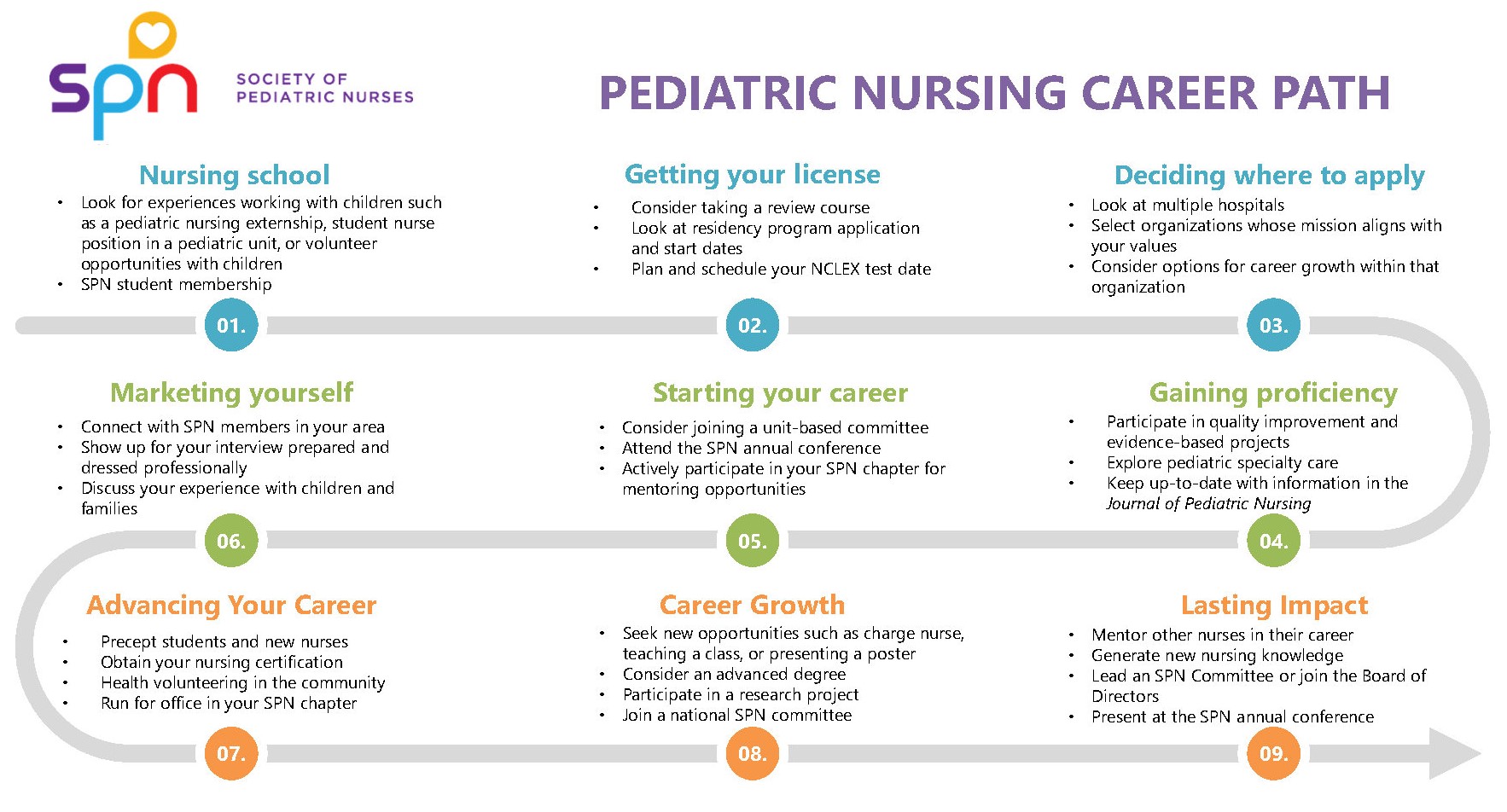You're in nursing school, now what?As you enter the second half of your schooling to become a nurse, it’s important to start considering what specialty is interesting to you. At SPN, we believe Pediatric Nursing is one of the most fulfilling and challenging nursing specialties. Read more about Becoming a Pediatric NurseYour journey to becoming a Pediatric Nurse starts here!Start here: Do your research of the different internships and residency programs available (both in your current location and anywhere you are willing to travel) for after you obtain your license.
Get your license: Plan when to schedule your license test date. Consider residency program application and start dates as you decide on scheduling your study plans and license test date. Market yourself: These programs are competitive, so how do you stand out from the rest? Advance your pediatric nursing career: Continue to advance your career through these professional development opportunities.
Make pediatric nursing and the Society of Pediatric Nurses your home, and then explore the world of specialties within pediatrics such as cardio, ortho, GI, renal, hematology, rehab, surgery, and so much more. Volunteer Contributors:
How to Market Yourself as a Pediatric NurseSizing up the competitionThere are over 250 children’s hospitals and hundreds of medical centers with pediatric departments in the United States (Ehrich et al., 2017). Each offers diverse types of post-graduate nursing training programs, also known as nurse internships or residency programs. It is wise to look at multiple hospitals to see what training they offer. Learning experiences offered by these programs can vary, such as innovative simulation, generous clinical training hours, virtual reality programs, lectures presented by clinical experts, and gamification. The more attractive the residency program, the more competitive they are. Ideally, you should choose a healthcare organization whose mission aligns with your values and offers a residency program that works best with your learning style. Also consider opportunities the organization offers for professional development and career growth. Be FlexibleIf you are adventurous, consider looking at healthcare organizations in different cities and states. This strategy will broaden and diversify your options. Some hospitals offer relocation packages with a stipend to cover your moving expenses. The impact of VolunteerismVolunteerism is the provision of service to help a need of an organization, community, or group (Dyson et al., 2021). This type of volunteer work can enrich experience and skills. For instance, community health volunteering offers insight and understanding of the social determinants that impact the people in the community (Coombs et al., 2021). Volunteering in professional organizations such as the Society of Pediatric Nurses offers networking opportunities and leadership experiences. Whatever volunteer work you do, highlight these activities on your nurse residency applications and during interviews by discussing the volunteer work, what you learned, the impact you made, and how it helped you grow in your career. Experience – what is the “right” experience for your resumeAny type of experience working or interacting with children or families (be sure to list them all). Your experience demonstrates your interest in children and engagement to go the extra mile.
Make sure to create a resume branding statement: Create a short succinct statement on the top of your resume: Example: “I am a student nurse with a passion for children and families. While providing safe, quality care, I enjoy bringing happiness to children through caring, empathy, and fun.” Interview Q&A for a pediatric nursing positionHow to get an interview
Once you secure an interview
Back to Top
|


